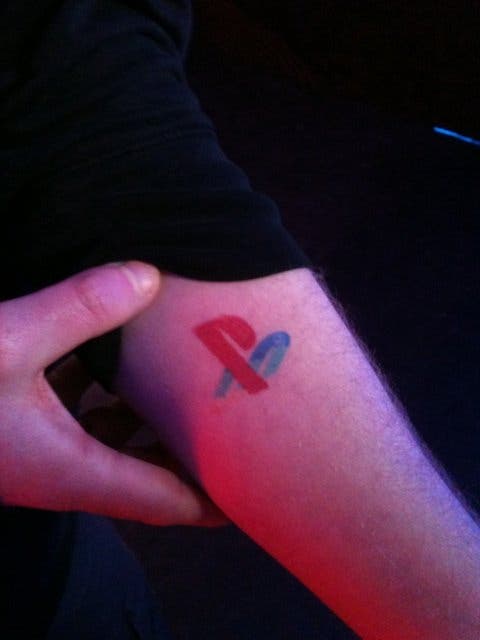For and Against: Fanboyism
Fahey vs. Minkley.
Earlier this month, we kicked off Eurogamer's new series of For and Against articles with a debate about motion control. The idea was to settle the argument once and for all.
The result was a pretty evenly split vote, which as everyone knows is a mandate to close Britain's libraries, make universities charge £10,000 an hour and abolish the dole in favour of workhouses.
Anyway, this time around, veteran GamesIndustry.biz columnist Rob Fahey is going head-to-head with Eurogamer TV's Johnny Minkley. They're arguing about fanboyism. Is it a bit of fun which provides a much-needed outlet for passionate expression and lively debate, or does it $uxx0r?
Read what Johnny and Rob have to say below, and don't forget to cast your vote in the poll at the end.
The Case For... By Johnny Minkley
During my early years at secondary school, I had a jotter with "SEGA RULES OK" scrawled over every inch of the front and back covers. One afternoon in a biology lesson, when the teacher wasn't looking, I furtively scribbled it on the white board for a chortle before moving quickly to scrub it off. Only, in a flash of genius, I'd mistakenly used a permanent marker. Detention.

In 1991 I spent a day being mercilessly mocked by classmates thanks to my now-colleague Richard Leadbetter. I'd spent the weeks and months prior to this moment preaching the gospel of Sonic The Hedgehog to everyone within earshot.
Then a kid brought in a subscription copy of Mean Machines in which the Digital Foundry technomage had scored it "only" 92 per cent. The effect was catastrophic. I was laughed out of the gates, left to wander home broken and bereft.
I could go on. The point is, during that devastating hormonal car crash into adolescence, I had to do something with my raging passions other than knock one out over the lingerie pages of the Littlewoods catalogue. And so my obsession became gaming.
On one level, fanboyism is all about competition and social status: knowing more about something than anyone else. The more obscure the more authentic, the better. It's the essence of geek. From pub quiz to Mastermind, the battle to be Fan No.1 is never-ending.
But as we cope with the shifting emotional sands of youth, the colours we nail to the mast, the posters we Blu-Tack to our walls (all Mega Drive games, natch), the things we furiously defend online are not just what define us, but what shape our future selves.
Indeed, my 12 year-old self's painfully insecure need to prove I was ultimate authority and last word on SEGA amongst my peer group kick-started the process that got me writing this article. And I'm hardly alone.

Without fanboyism there would be no games press. The critical method can be developed later – but the preceding years of partisan preaching, bitching, flaming and posturing nurture the voice of the aspiring writer.
When I was a child there wasn't an internet through which to broadcast my humiliating love-letters searing critiques on videogames. I made do with sketching out my own fanzines in notebooks, painstakingly replicating the style of my favourite mags.
Now, of course, fanboy can splurge his opinions online in a thousand different ways. Yes, most of this is just shouting into the void. But when engaged with properly, the voice is not only heard, but also shared – enriching the body of opinion on any subject.
Where the professional critic may lack the resources or inclination, the fanboy dutifully wades in with his mental archive of suddenly relevant trivia and, crucially, the desire and need to be heard - and so contributes in a meaningful way.

At its best, the sheer volume of impassioned opinion online expands debate, deepens knowledge and keeps journalists on their toes, whilst all the while evolving our understanding of how games can be enjoyed and understood. And most of this is done not for a single penny, but simply for the love of it.
It would of course be absurd to pen a hagiography of the fanboy without acknowledging the ugly, nasty side of fan culture. Blinkered attachment blinds us to reason, arbitrarily limits what we allow ourselves to enjoy, stifles constructive debate and – as every internet forum testifies - brings out the worst in people.
There's a body of psychological research that suggests – counter-intuitively – the last person you should ask for buying advice is the person who's just bought the thing you're asking about.
If someone's spent a fortune on a car, for example, and it actually turns out to be right old banger, the pain of admitting gross error is so great that cognitive biases kick in until the buyer sees only virtue in their purchase.

